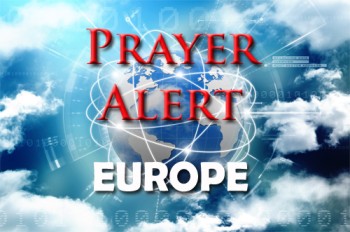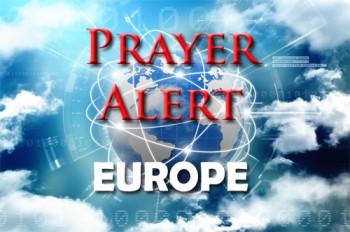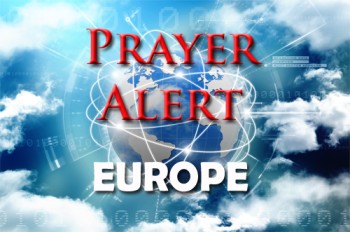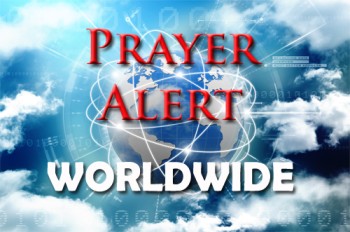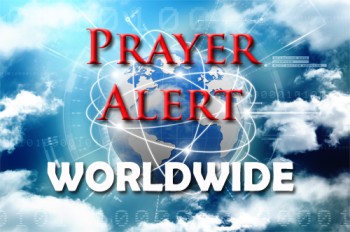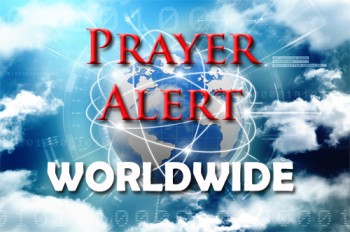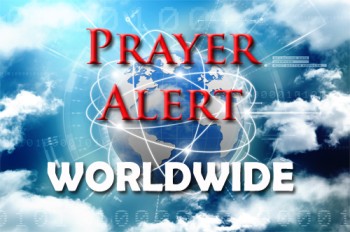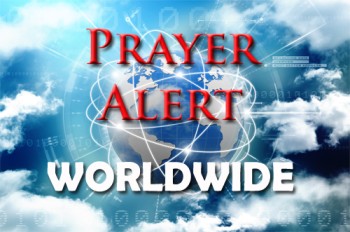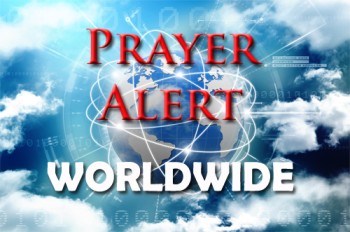Displaying items by tag: Armenia
Armenia: bitter dispute escalates between PM and the church
A deepening rift between prime minister Nikol Pashinyan and the Apostolic Church, is threatening to polarise the nation of three million. Tensions erupted after Pashinyan accused Catholicos Karekin II, the Church’s spiritual head, of fathering a child and supporting a coup plot, allegations Karekin denies. The conflict, rooted partly in fallout from Armenia’s 2020 defeat in the Nagorno-Karabakh war, has escalated with arrests of senior clergy and opposition figures, sparking alarms over religious freedom and national unity. Church bells rang an alarm at St Echmiadzin, historically reserved for invasions, signalling the detention of Archbishop Mikael Adjapakhyan, who was later arrested alongside others accused of plotting a coup. The dispute intertwines personal grievances, political rivalries, and historical tensions linked to the powerful 'Karabakh clan'. The World Council of Churches has voiced deep concern, calling for wisdom and justice to prevail. Meanwhile, Armenians fear the confrontation may fracture their society further, both politically and spiritually. See
Armenia looks to other countries rather than Russia for weapons
Russian foreign minister Sergey Lavrov has acknowledged delays in weapons deliveries to Armenia due to the strain of the war in Ukraine. Armenia, a long-time Russian ally, has historically depended on Russian arms amid its bitter decades-long conflict with Azerbaijan. However, as Moscow struggles to meet military commitments, Armenia is increasingly turning to Western partners like France and India for defense support. Lavrov said that these shifts were worrying, especially given France’s strong opposition to Russia's actions in Ukraine. But Armenia has expressed deepening frustration with Moscow, particularly after Russian peacekeepers failed to prevent the mass exodus of over 100,000 ethnic Armenians from Nagorno-Karabakh during Azerbaijan’s swift military campaign in September 2023. As Armenia rethinks its security alliances, the region remains volatile, with historical wounds and unresolved tensions continuing to shape its strategic decisions.
Nagorno-Karabakh: ICJ will hear cases from both sides
The International Court of Justice (ICJ) has confirmed that it has jurisdiction to hear cases filed by Armenia and Azerbaijan, two long-standing adversaries. The cases stem from the 2020 Nagorno-Karabakh conflict, with both nations accusing each other of violating the international convention on racial discrimination. Armenia accuses Azerbaijan of engaging in ‘ethnic cleansing’, while Azerbaijan claims Armenia has spread hate speech and racist propaganda. The ICJ had previously issued emergency orders to prevent the incitement of racial hatred and protect ethnic Armenians fleeing Nagorno-Karabakh after Azerbaijan’s military actions in 2023. While the court’s rulings are binding, it lacks enforcement power. The cases are still in the early stages, with the court narrowing the scope of certain claims and excluding others. The process could take years to resolve, as both nations await the next hearings and a final ruling on the merits of their claims.
Armenia / Azerbaijan: prisoner exchange a step forward
On 12 December, Armenia and Azerbaijan took a significant step forward by exchanging prisoners. This move follows years of conflict over the Nagorno-Karabakh region, which Azerbaijan annexed in September, resulting in most of its population fleeing to Armenia. The exchange, facilitated by the International Red Cross, involved the release of 10 Azerbaijani prisoners and the return of 15 Armenian captives. This act of goodwill was welcomed by the EU and the USA, who have been trying for years to persuade the two countries to sign a peace treaty. The exchange follows another positive move, an announcement on 7 December by Azerbaijan that it would not object to Armenia hosting COP29 in 2024: see
Armenia / Moldova: initiative for youth with disabilities
Eurasia Foundation (EF) has announced the launch of a two-year Justice for Underserved Youth with Disabilities (JUDY) initiative, which promotes the full social, economic, and political integration of youth with disabilities in Armenia and Moldova. EF works with local organisations, international disability rights experts, and youth advocacy experts to amplify the voices of youth with disabilities between ages 18 and 30. Lisa Coll, EF president, says, ‘JUDY addresses the unique challenges faced by youth with disabilities, both because of their age and entrenched cultural stigma around disability.’ While both the governments of both countries demonstrate interest in protecting the rights of people with disabilities, the legacy of Soviet-era policies and cultural stigma often complicate the work of disability rights advocates. Many institutions in both countries view disability as a medical topic, rather than a social and political issue that can change through concerted effort. JUDY will approach these challenges by involving organisations and experts with deep roots in the local disability rights communities. This collaboration will foster more open dialogue, build relationships, and provide support for youth-led initiatives.
Saudi Arabia: football, human rights, nuclear programme
News that Saudi Arabia is on course to host the 2034 football World Cup is grim. The country might not win the cup, but its capacity for state murder is world class: 112 killed this year so far and counting. However, the news should come as no surprise: its geopolitical power is rising and combining with vast wealth to ensure that objections to its human rights record are brushed aside by those in power. Before he was elected president, Joe Biden declared that Saudi would be treated as a ‘pariah state’ following the state-sanctioned murder of dissident journalist Jamal Khashoggi in 2018. But once he was in the Oval Office, realpolitik intervened. His administration is now most concerned about China’s growing influence, which is why it has agreed to Saudi Arabia’s request for help in building a civilian nuclear programme - which critics fear could lead to developing nuclear weapons. US dollars could end up paying for the defence of a brutal Gulf regime that has undermined Western economies, helped Russia’s invasion of Ukraine by cutting oil supplies and keeping prices high, and continued with the catastrophic war in Yemen. In these terms, gifting Bin Salman the World Cup seems like a minor folly.
Armenia: Nagorno-Karabakh blockade continues
Asmaryan eats potatoes for every meal. He lives with 120,000 other ethnic Armenians in Nagorno-Karabakh, an enclave in Azerbaijan in the South Caucasus. They are cut off from Armenia by the Azerbaijani blockade of the Lachin Corridor, the only road in or out of Nagorno-Karabakh. They are under siege, with little food, essential medicines, hygiene products, baby formula, or fuel. Residents believe Azerbaijan wants to starve them into submission so that if or when the road reopens, they leave. It is a slow-motion genocide, with hunger the weapon. Asmaryan said outsiders don’t care about Karabakh as they have no natural resources: ‘They talk about human rights but do nothing.’ However, the Archbishop of London’s Coptic Orthodox Church, the Primate of the Armenian Church of the UK, the Bishop of Southwark, and other church leaders have written an open letter to Rishi Sunak urging immediate action to open the Lachin Corridor and prevent genocide. Also, Armenians will demonstrate in Yerevan on 2 September to express unity with Nagorno-Karabakh.
Nagorno-Karabakh - prayer still needed
In January we prayed for the 120,000 Christians stranded in Nagorno-Karabakh, a landlocked enclave between Armenia and Azerbaijan, asking God to halt the obstructions to one of Christianity's oldest communities. The situation continues and requires immediate action. Currently, inhabitants of Nagorno-Karabakh cannot travel freely out of the region; 954 are still stranded on either side of the corridor. Only the Red Cross and Russian peacekeepers’ vehicles are allowed to travel along this corridor, which is clearly insufficient to fulfil the needs of the population. It is vitally important that goods can get through in time for the sowing season. Furthermore, the repeated disruption of gas and electricity supply to the territory has resulted in serious violations of the rights of the inhabitants: many have lost their jobs and children are deprived of education since schools had to close. Azerbaijani military positions are within Armenian sovereign territory, sometimes well beyond any disputed border.
Armenia: Christians face dire circumstances
‘There is no time to wait, this is genocide’, said Dr Sukhudyan, describing the situation in Nagorno-Karabakh, a landlocked enclave between Armenia and Azerbaijan. Deadly battles between Armenians and Azerbaijanis have previously raged there. Armenia is the world's first official Christian country, and 120,000 Christians live in the enclave. The road to it was protected by Russian peacekeepers, but on 12 December Azerbaijani protesters blocked it, preventing food, medicine, and other basic transport in or out. Now this ongoing dispute - in light of the past genocidal horrors - has human rights groups deeply concerned about what is to come. The minister of state for Nagorno-Karabakh said this is probably the prelude to an Azerbaijani armed attack, and if Russia does not step in, Armenia is not strong enough to stop them conquering the region. There will be massacres, with the oldest churches in the world possibly destroyed.
Armenia: the forgotten war victims
A group of Armenian organisations has appealed to the UN, warning about ethnic cleansing of the population of Nagorno-Karabakh by Azerbaijani Muslims. Their letter stated, ‘Two years have passed since the war against Nagorno-Karabakh started, but security issues are not resolved yet. Many fundamental rights are continually violated, plus significant and increasing risk of new conflicts and atrocities. Ethnic cleansing of native Armenians of Nagorno-Karabakh is especially alarming. The Azerbaijani government's extreme hatred and belligerent rhetoric, destruction of Armenian monuments, appropriation of cultural heritage, exceptional brutality by Azerbaijani armed forces, continuous threats of violence, and intimidation are characteristic of genocidal atrocities. The scenario of ethnic cleansing may become a reality if Azerbaijan’s crimes remain unaddressed and effective pressure is not put on Baku to refrain from violence.’ Armenian Christian families in villages across the enclave need prayer, hope, and practical help. If their pasturelands are not seized by armed forces, they are too dangerous to use because the military are so close. See

